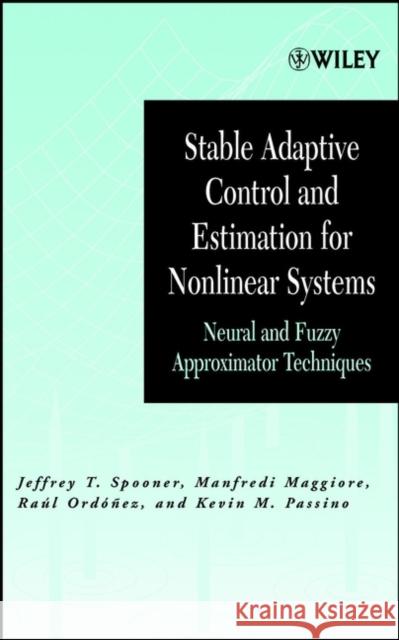Stable Adaptive Control and Estimation for Nonlinear Systems: Neural and Fuzzy Approximator Techniques » książka
topmenu
Stable Adaptive Control and Estimation for Nonlinear Systems: Neural and Fuzzy Approximator Techniques
ISBN-13: 9780471415466 / Angielski / Twarda / 2002 / 568 str.
- Includes a solution manual for problems.
- Provides MATLAB code for examples and solutions.
- Deals with robust systems in both theory and practice.











